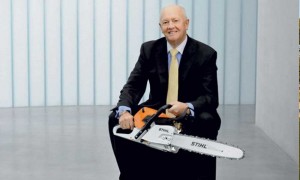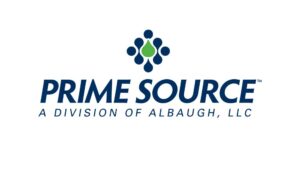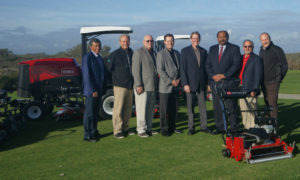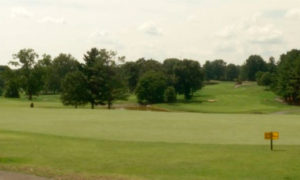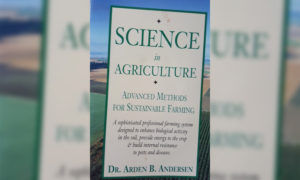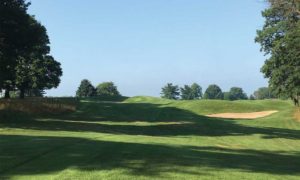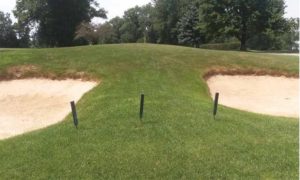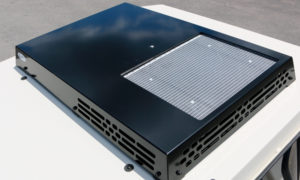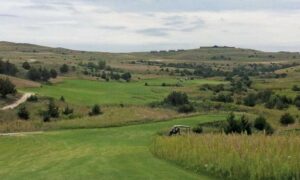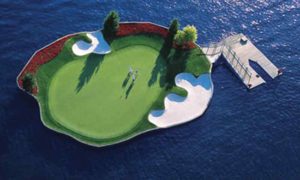Are you good with multiple-choice questions? Try this one.
The word ‘excelsior’ means:
(a) a Star Trek starship; (b) a famous poem; (c) a city in the United States; (d) the shaved wood packing material often found in gift boxes and fruit baskets; or (e) one of the world’s largest diamonds.
Okay, it’s a trick question; all of the answers are correct.
You will find excelsior in the name of poems, cities, gemstones, spaceships, sports teams, hotels, schools and other organizations that want to align with the word’s Latin meaning of ‘always upward; high or lofty.’ Appropriately, the word excelsior is also in the name of American Excelsior Company, the manufacturer widely recognized as the nation’s leading producer of stranded wood fibers for packing, erosion control and an impressive list of other applications.
Excelsior for More than a Century
In the 1800s, sawmills boomed as America rapidly built ships, railways and cities. Wood shavings from the mills were a nuisance byproduct until creative minds recognized the potential to pack cushions, mattresses and upholstered furnishings with shaved wood, replacing the heavy, oily horsehair stuffing then in use. Excelsior, originally a brand name of a specific product, soon evolved into the widely accepted name for all shaved wood stuffing and packaging material, although you will also hear people refer to excelsior as ‘wood wool.’
In 1888, the American Excelsior Company was launched for the production of stranded wood fibers that today are manufactured exclusively from aspen trees. Over the years, American Excelsior has expanded its offerings to include various plastics, straw, jute and other materials, yet the manufacture of shaved wood and its related products has remained a cornerstone of the company’s success.
Today American Excelsior has facilities in Ohio, Wisconsin, Alabama, Illinois and Washington, in addition to its corporate headquarters in Arlington, Texas. The company’s Rice Lake, Wisconsin, location specializes in the production of excelsior wood fibers and erosion control products, offering more than sixty different cuts of excelsior fiber of various widths and thicknesses.
Among the many products created from excelsior are animal bedding for agriculture, laboratories, science centers and pet facilities, pads for evaporative coolers (commonly called swamp coolers), taxidermy stuffing, bases for archery targets, compressed ceiling tiles and burn blocks for fire training schools. Widely used by the craft and floral industries as a decorative product, excelsior is also used in oil filtration in combustion engines, oil field filtering and vinegar filtration.
In erosion control, American Excelsior’s registered Curlex® excelsior is one of the few branded products in the industry. Used in multiple ways, Curlex fiber has small protrusions (soft barbs) that intertwine or cling together, making it particularly well suited for sediment filtering, erosion control and revegetation projects. Curlex excelsior fibers are naturally clean and do not contain resins (pitch).
Curlex® NetFreeâ¾Ã‚¢
Organic, free from weed seeds, and inherently biodegradable, Curlex blankets can be unrolled across newly planted areas to protect sprouts, seedlings or other young plants from temperature extremes or the risk of washing away before their roots have stabilized. Curled and interlocking, the fibers form a strong, multi-directional fiber matrix that allows Curlex blankets to provide intimate subgrade contact and conform to terrain surface variations without bridging.
The company’s Director of Technical Services, Kurt Kelsey, M.S., CPESC, CPSWQ, describes the production process as essentially using large sewing machines to stitch the excelsior into biodegradable blankets. Both the Curlex fibers and the thread used to stitch the blankets together are fully biodegradable. In addition to providing erosion control, sediment control and protection of sod and seedlings in revegetation areas, Curlex fibers afford the added benefit of removing oil from water.
Casting a Wider Net
In addition to its biodegradable netting, American Excelsior produces stronger netting types and heavier fiber weights. Green or black color-coded plastic netting is designed for use when UV resistance, strength and longevity are required. White color-coded photodegradable Quick Mowâ¾Ã‚¢ nets are made from a rapid breakdown polypropylene netting and are often used in urban golf course environments or along roadsides where mowing is required. Other Curlex products include Curlex Sediment Log® and Curlex® Blocâ¾Ã‚¢, shoreline and sediment devices.
To aid golf course superintendents, turf managers and maintenance crews in choosing the best excelsior product for their golf courses, all American Excelsior Company products include performance ratings for slope applications and channel applications as part of their Material Specifications and Manufacturer’s Certification, Product Data Sheets and CSI Long Specification available through the company’s Technical Support Library. The company also offers free erosion design and analysis software called ErosionWorks® that takes user input data and recommends the best product for each application.
Protecting Your Greens
In addition to erosion control, excelsior protects greens against drying winds, frost penetration, grass desiccation and cold temperatures. Curlex Green Saversâ¾Ã‚¢ are natural excelsior blankets that help maintain a more constant surface temperature while allowing air circulation. By minimizing heat buildup and the freeze-thaw cycle, greens can be ready to play weeks earlier in the season.
Green in Every Way
The American Excelsior Company maintains a one-of-a-kind ErosionLab®, which is the largest privately owned testing, research and development facility of its type. Built in 1997, ErosionLab covers 40 acres in Rice Lake, Wisconsin, and has the capacity to run multiple large-scale rainfall, channelized flow, sediment control and vegetation studies concurrently.
The lab adheres to international ASTM Test Standards when possible. Over the years, ErosionLab has conducted research and development projects in conjunction with the U.S. Environmental Protection Agency, various Universities, the state of Wisconsin, local counties and even competitors. Each year, hundreds of people receive training at ErosionLab with hands-on experiences through seminars, internships and other programs.
Few companies commit the time, money and resources to operations designed specifically to benefit the environment and environmental research. As Kurt Kelsey explained, ‘American Excelsior was a ‘green’ company long before it was the trendy thing to do. To put it into perspective, we have an entire division (the Earth Science Division) that is focused on providing erosion control, revegetation and sediment control solutions to help the environment. We continue to take enormous pride in our commitment to the environment, which is evident through our earth-friendly innovations since 1888.
‘We are constantly working to develop additional biodegradable options for all the markets in which we conduct business. Our latest pledge to Mother Nature is to use only Aspen Excelsior that is certified by the Forest Stewardship Council (FSC) because we believe in the FSC’s mission to promote environmentally sound, socially beneficial and economically prosperous management of the world’s forests.’
You can learn more about this unique natural product and environmentally responsible company at www.americanexcelsior.com.

